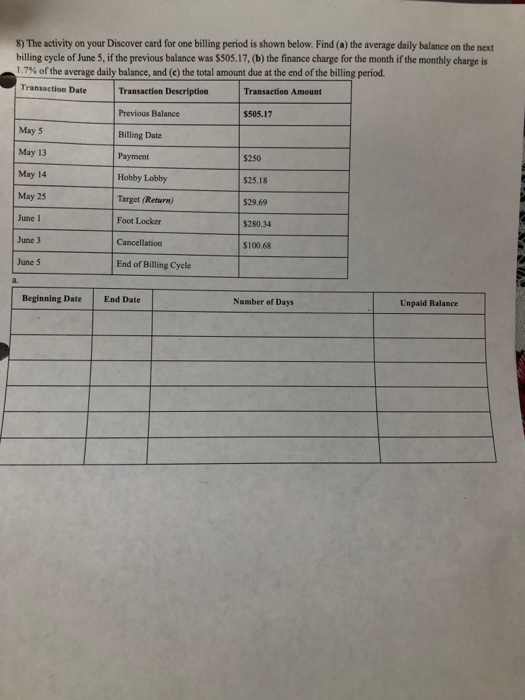The assignee has a lien on the automobile and can repossess if you don't pay. Co-signer A co-signer is a personsuch as a moms and dad, close family member, or friendwho pledges to repay the loan if you do not. This can be a benefit both to you and your lending institution. A co-signer takes full duty to pay back the loan. Having a co-signer on your loan offers your lender extra guarantee that the loan will be repaid. If timeshare cancellation attorney you do not repay your loan, your co-signer will be liable for payment even if the co-signer never ever drove your vehicle. If you've been asked to co-sign a loan, you ought to think about how it will affect your finances. In some states, the law enables the creditor to reclaim your automobile without going to court. For more information, consisting of definitions of typical terms utilized when funding or leasing an automobile, check out "Understanding Car Financing," jointly prepared by the American Financial Services Association Education Foundation, the National Vehicle Dealers Association, and the FTC. To buy print copies of "Comprehending Automobile Funding," call the AFSA Education Foundation: (888) 400-7577.
A finance charge is a cost troubled a customer for acquiring credit. Financing charges consist of interest on debt balances and any extra fees enforced by the credit-issuing entity. Below, you'll discover common examples of financing charges that customers face, and some suggestions for reducing the effect of these fees. A finance charge is any expense a consumer encounters in the process of acquiring credit and paying back debt. Finance charges usually featured any kind of credit, whether it's a credit card, an organization loan, or a home loan. Any quantity you pay beyond the quantity you obtained is a finance charge.
One of the advantages of having a credit card is that you can obtain money without having to pay off your balance in full monthly. However, taking your time to repay your debt comes at a price. Your company will charge interest on any balance not paid off by the end of the month. That interest cost is a finance charge. If you miss out on a minimum payment due date that falls beyond a grace period for your credit card, you might be charged a late payment fee, which is another example of a finance charge. Financing debt is big organization in the U.S.

3 trillion. That's a 1. 1% boost because the 4th quarter of 2019, when family debt was currently 26. 8% higher than it remained in 2013. The majority of that financial obligation (if not all of it) will come with finance charges such as interest charges and loan processing costs. Financing charges are calculated each billing cycle based upon the existing prime rate. Since July 15, 2020, the Wall Street Journal calculated the prime rate to be 3. 25%. This rate changes in action to market conditions and Federal Reserve policy, so your potential financing charge could differ monthly (What is a note in finance). If you have a fixed-rate loan, the finance charge is less most likely to differ, though it might still fluctuate based upon elements such as your payment history and timeliness.

The Best Guide To What Is A Discount Rate In Finance
Credit card companies might determine financing charges utilizing your day-to-day balance, an average of your day-to-day balance, the balance at the start or end of the month, or your balance after payments have actually been used. Your charge card agreement may likewise include a minimum finance charge that's used anytime your balance goes through a cost. For example, your credit card terms might consist of a $1 minimum finance charge, so if a billing cycle's charges are $0. 65, that'll be assembled to $1. You can minimize the amount of interest you pay by decreasing your balance, requesting a lower rate of interest, or moving your balance to a credit card with a lower rates of interest.
Financing charges can be noted in a number of locations on your monthly credit card billing declaration. On the first page of your billing statement, you'll see an account summary noting your balance, payments, credits, purchases, and any interest charges. In the breakout of deals made on your account throughout the billing cycle, you'll see a line product for your finance charge and the date the finance charge was examined. In a separate section that breaks down your interest charges, you'll see a list of your finance charges by the type of balances you're carrying. For example, if you have a purchase balance timeshare cost and a transfer balance, you'll see information of the financing charges for each.
For mortgages, monthly payments are separated into principal and interest payments, in addition to extra expenses like real estate tax. In this case, the "primary" portion of payments would not certify as a financing chargeit just approaches minimizing your financial obligation balance. The interest payments, on the other hand, are a financing charge. Making your minimum credit card payment is generally enough to cover your financing charge plus a small portion of the balance. However, if you're only paying the minimum payment, your balance won't reduce by that muchit takes the bulk of a monthly payment simply to cover interest charges. Given that your balance isn't reducing significantly, you'll face another interest charge during the next billing cycle.
For those with significant debt, the minimum payment may not cover the month's financing timeshare exit team las vegas charge. In this case, paying the minimum will result in a bigger balance. Reducing financial obligation will need payments beyond the minimum. A financing charge is a cost imposed on a customer who gets credit. Finance charges include interest charges, late costs, loan processing costs, or any other expense that goes beyond repaying the quantity borrowed. For many kinds of credit, the financing charge varies as market conditions and prime rates alter.